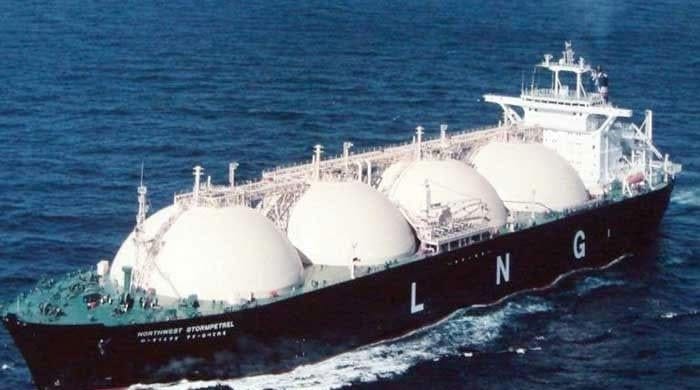Gas tariff: PM forms body to finalise recommendations on WACOG mechanism

Source: The News International
ISLAMABAD: In a major development, the government has decided to introduce the mechanism of WACOG (weighted average cost of gas) while determining gas tariff by blending local natural gas with imported RLNG, mainly to bring down the gas tariff for industrial (export and non-export) sector in Punjab, high-end domestic consumers and RLNG-based power plants, senior officials of the Energy Ministry told The News.
"To this effect, the prime minister has constituted an 11-member committee comprising minister of petroleum as convener, minister for power, minister for industries as members, Power Division secretary, industries and production secretary and Captain (retd) Muhammad Mahmood as members. The four provincial chief secretaries will also be members of the committee, while the Petroleum Division secretary will act as secretary of the committee," they said.
The committee has been given seven days to report its findings and recommendations to the prime minister about the introduction of WACOG in gas tariff with its positive and negative implications. Currently, Ogra determines the natural gas tariff for domestic sector consumers and LNG price separately for power sector.
During the caretaker regime, the gas regulatory body introduced a limited WACOG mechanism when it increased the gas prices up to 193 percent from November 1, 2023 to recover the price of LNG diversion cost to the domestic sector. There is an estimate that in 2023-24 winter season, the LNG diversion cost would stand Rs232 billion. In the head of LNG diversion to domestic sector, there is still a backlog of Rs250 billion dues, which is yet to be recovered from the domestic consumers. Once the WACOG mechanism is introduced, the LNG backlog dues would also be recovered from the domestic consumers easily.
Under the terms of reference (ToRs), the committee will examine the whole spectrum of issues, including WACOG impact on gas system's liquidity/efficiency and circular debt. It will also evaluate the implications of WACOG on domestic power, industrial sectors (including fertilisers), and commercial and captive power sectors.
The committee will propose a technology-based, foolproof and efficient system for a direct subsidy to farmers by the provinces to mitigate the impact of WACOG on the agricultural sector and productivity. The WACOG affects a broad range of sectors, highlighting its significance in the country's energy framework. The inclusion of high-level ministers and secretaries indicates the government's serious approach to addressing WACOG-related issues. The directive for technology-based solutions for subsidy distribution suggests a push towards modernisation and efficiency.
"If the WACOG is introduced, then the cost of local gas for the industrial sector in Sindh, Balochistan and KP would be increased. However, the gas price for industrial sector in Punjab would tumble," the officials said. However, they said, the gas-producing federating units such as Sindh, Balochistan and KP may oppose the introduction of WACOG, arguing that they have enough gas to meet their energy needs.
During the PTI regime in 2020, the same move for implementing WACOG mechanism in the gas tariff was initiated, but at that time Sindh Chief Minister Syed Murad Ali Shah opposed it in a letter to the then prime minister Imran Khan that the federal government's endeavour was quite inappropriate and unconstitutional, as import of RLNG is solely for the Tier-II category of natural gas consumers under the ring-fenced tariff arrangements and the existing Tier-I consumers of natural gas under WACOG base tariff could not bear the burden of high cost of imported RLNG.
Sindh further mentioned that any attempt to work out a natural gas tariff by including the RLNG into the existing WACOG of indigenously produced natural gas is gravely disturbing and illegal. "Sindh is the largest producer of natural gas and its consumers shall not be burdened with the high cost of RLNG." Sindh produces natural gas between 2,500-2,600mmcfd and the quota of SSGCL for its two franchised provinces i.e. Sindh and Balochistan varies between 1,200-1,300mmcfd. Sindh currently received an average 900-1,000mmcfd of natural gas against its constitutional right of 2,500-2,600mmcfd.
